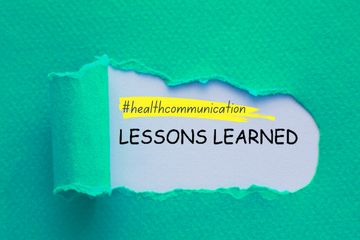Health campaigns on social media receive immediate feedback often in the form of mocking comments and memes. Though mocking is usually done to humiliate the campaign, it can also draw more attention, making it unclear if mocking helps or hurts. A recent study in Health Communication tested how social media users’ feelings, thoughts, and intentions to avoid raw cookie dough were affected by other users’ mocking the CDC’s “Say No to Raw Dough” campaign (DOI: 10.1080/10410236.2023.2282833). In the experiment, 681 participants were shown campaign posts from the CDC and then shown user posts either mocking the campaign or taking it seriously. Participants were also shown responses from the CDC that were either self-mocking or serious.
What they learned: Viewing mocking responses makes people think that other people think it’s unimportant to avoid the health risk, which ultimately leads to lower intentions to follow the health advice. Viewing mocking responses also leads to anger, which affects people’s intentions to avoid health risks: People who are angry with the campaign have lower intentions to avoid the risk, while people who are angry with the users mocking the campaign have higher intentions to avoid the risk. Self-mocking responses to user mocking make people amused with the campaign, but do not impact people’s intentions to avoid the health risk.
Why it matters: As more people get their health information from social media, health communicators need to adapt campaigns to account for interactive online environments. New strategies need to assess how viewing the message and reactions to it will impact people’s thoughts, feelings, and behaviors.
➡️ Idea worth stealing: Test your message with your audience to find out and avoid ways the message can be mocked. If your message does get mocked, responding with your own humor is an effective crisis management strategy. If possible, retarget the campaign to people who would be angered by the mocking responses.
What to watch: How health communicators adapt their strategies to anticipate and respond to reactions of their online communities.




